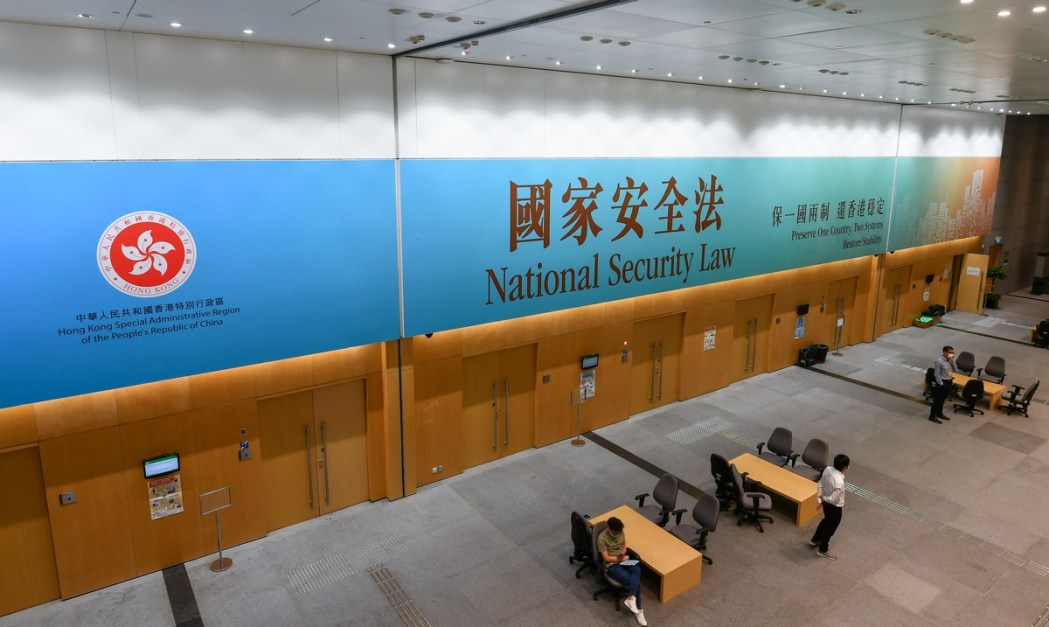Hong Kong’s security minister has hailed the 100 per cent conviction rate in cases concerning national security, while the chief of public prosecutions said upholding justice was “in the DNA” of local prosecutors.

Government officials and some legal professionals threw their weight behind the national security law on Thursday, when government-funded broadcaster RTHK launched a new programme about the Beijing-enacted legislation a little over two months before its third anniversary.
Secretary for Security Chris Tang praised the arrest and prosecution work over the past three years, saying it was done “very seriously.” He said around 250 people were detained over national security offences and 151 of them had been charged as of the end of last month.
“All 71 people who have gone through judicial proceedings were convicted. Only a small number of people in Hong Kong were involved,” the former police chief said.
Asked if members of the public were “overly worried” when the law was first rolled out, Tang said the provisions in the Beijing-imposed legislation were “very clear” and ordinary citizens would not “accidentally breach the law.”
Tang’s remarks came as RTHK launched the NSL Chronicles II, a radio and television programme which examines actual national security cases including the landmark trial of Tong Ying-kit, the case of Returning Valiant and others.
In June 2020, Beijing inserted national security legislation directly into Hong Kong’s mini-constitution – bypassing the local legislature – following a year of pro-democracy protests and unrest. It criminalised subversion, secession, collusion with foreign forces and terrorist acts, which were broadly defined to include disruption to transport and other infrastructure. The move gave police sweeping new powers, alarming democrats, civil society groups and trade partners, as such laws have been used broadly to silence and punish dissidents in China. However, the authorities say it has restored stability and peace to the city.

Apart from the four types of offences, sedition cases under a separate colonial-era law are also handled by the city’s national security police and handpicked national security judges. Bail conditions are much stricter than in criminal cases.
Those convicted under the sedition law – last amended in the 1970s when Hong Kong was a British colony – face a maximum penalty of two years in prison compared to life imprisonment for some offences under the national security law.
Speaking at the same launching ceremony, Director of Public Prosecutions Maggie Yang was asked about the accusations by foreign media that the Hong Kong government used the security law to bring prosecutions “with other intentions.”
Yang described the allegations as “totally false,” saying the work of the Department of Justice (DoJ) was carried out in accordance with the Basic Law and “free from any interference.” She added the department would disclose any evidence deemed as favourable to the defendants, so as to ensure they would have a “completely fair and just trial.”
Asked how prosecutors coped with the challenging work in national security cases which were often subject to close scrutiny in society and by the media, Yang responded: “I want to tell the Hong Kong citizens that defending the rule of law and upholding justice is in the DNA of our prosecutors. It is our original intention when we joined the DoJ.”
Hong Kong will mark its National Security Education Day on Saturday, with disciplined services hosting a open day for the public. Various activities will also be held, including game booths, quizzes and visits to the Patriotic Education Centre.
Support HKFP | Policies & Ethics | Error/typo? | Contact Us | Newsletter | Transparency & Annual Report | Apps
Help safeguard press freedom & keep HKFP free for all readers by supporting our team























